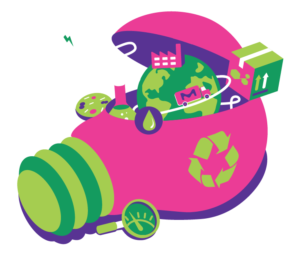 MilliporeSigma has launched an enhanced Design for Sustainability (DfS) framework, a unique approach to holistically integrate sustainability into products, systems and services. With the introduction of DfS, MilliporeSigma leads the life science industry in ensuring that sustainability is at the forefront of each stage of the product life cycle. This important strategic initiative supports the company’s commitment to integrate sustainability into all value chains by 2030, as outlined in its sustainability strategy.
MilliporeSigma has launched an enhanced Design for Sustainability (DfS) framework, a unique approach to holistically integrate sustainability into products, systems and services. With the introduction of DfS, MilliporeSigma leads the life science industry in ensuring that sustainability is at the forefront of each stage of the product life cycle. This important strategic initiative supports the company’s commitment to integrate sustainability into all value chains by 2030, as outlined in its sustainability strategy.
“This approach has had a positive impact on MilliporeSigma’s business internally, and now it also will benefit our customers across academia, pharma and industry — helping them make more informed decisions and surpass their own sustainability goals,” said Chris Ross, interim CEO, MilliporeSigma. “Using the DfS framework, MilliporeSigma will offer a deeper level of data-driven insight to help guide customer conversations around greener, more sustainable alternatives.”
The DfS framework comprises three parts — Development, Consulting and Re-engineering — in which MilliporeSigma identifies the sources of environmental impacts, defines relevant targets and measures product sustainability characteristics.
- Development: In the Development process, MilliporeSigma coordinates efforts with its customers and internal researchers to provide more sustainable solutions in their applications. The DfS standards guide the research and product development processes by introducing greener products from the outset. One example is MilliporeSigma’s StericupE and SteritopE sterile filters, which significantly reduce the amount of plastic and packaging that enters the laboratory and waste stream.Launched as an internal program in 2014, the DfS-Development framework was revamped in 2020 to include new categories and sustainability measures that allowed MilliporeSigma to better assess products and share sustainability features with customers. The framework consists of 23 sustainability aspects grouped into seven categories covering the major areas of environmental and human impacts: Materials; Suppliers & Manufacturing; Energy & Emissions; Water; Packaging; Usability & Innovation; and Circular Economy.
- Consulting: In the Consulting stage, MilliporeSigma collaborates with customers in industries ranging from agriculture to household products manufacturing on ways to apply green chemistry designs to their research and operational approaches. For example, MilliporeSigma is working with a technology partner in the leather tanning industry to introduce a safer alternative to one ingredient. This alternative product will improve both sustainability and safety, while also yielding high quality leather.
- Re-engineering: In the Re-engineering stage, MilliporeSigma uses the proprietary DOZN green chemistry tool. This industry-first tool employs the 12 Principles of Green Chemistry to compare the greenness of similar chemicals, synthetic routes and chemical processes. With the DOZN tool, researchers can identify pivot-points to implement and quantify significant sustainability measures, such as improving resource use, increasing energy efficiency and minimizing human and environmental hazards.
The DfS program is a cornerstone of MilliporeSigma’s commitment to delivering sustainable business practices throughout the lifecycle of its products. This approach allows the company to offer new products with smaller environmental footprints, while helping customers exceed their own sustainability targets in key areas such as energy, waste and water.





Tell Us What You Think!